All Aboard the Love Train with the Owl in the Rafters
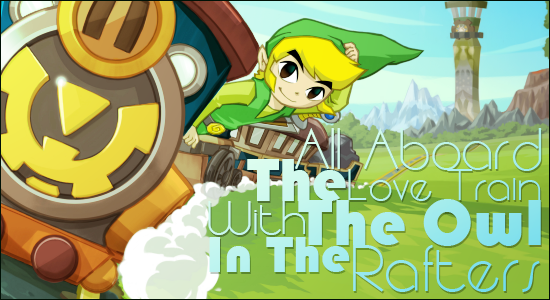
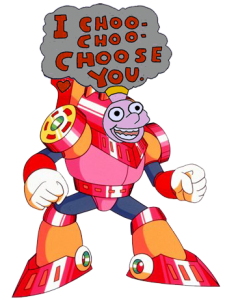 I will admit right off the bat that I may have exaggerated the lovey-dovey-ness of this year’s Valentine’s Day article. Last year I covered the career of anime film director Makoto Shinkai and his line up of gut wrenching, heart breaking, and eye watering romance films, but this year I’m trading in the fantasy-like sparkle and hard hitting drama angles for something that I hope you’ll find just as sweet and almost as bitter, but just a little bit humbler, and a whole lot geekier. If you hadn’t already guessed from the title, this year’s Valentine’s Day spotlight title is the Japanese pop hit, Densha Otoko. (lit. “[the] Train Man”)
I will admit right off the bat that I may have exaggerated the lovey-dovey-ness of this year’s Valentine’s Day article. Last year I covered the career of anime film director Makoto Shinkai and his line up of gut wrenching, heart breaking, and eye watering romance films, but this year I’m trading in the fantasy-like sparkle and hard hitting drama angles for something that I hope you’ll find just as sweet and almost as bitter, but just a little bit humbler, and a whole lot geekier. If you hadn’t already guessed from the title, this year’s Valentine’s Day spotlight title is the Japanese pop hit, Densha Otoko. (lit. “[the] Train Man”)
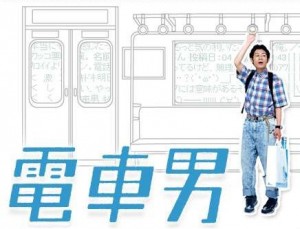 The story’s set up is simple enough, a typically awkward 23 year old otaku living in Tokyo, Japan gets on a train one night and sees a drunken man harassing some of the other passengers. In spite of all implied character traits deemed unsuitable for heroism, the young man puts himself between the victims and victimizer and gets into something like a fight (keeping in mind this is just a feeble geek on one end and a moderately inebriated man on the other) until the a train conductor arrives to break things up. The young geek is thanked for his attempted heroics and a young woman requests his home address so that she might send him some kind of formal thank you gift. After receiving said gift the young man attempts to court the young woman, once again in spite of all the social and romantic handicaps implied of an otaku. Despite all his anxieties and awkwardness however, he succeeds in overcoming the many hurdles of establishing intimate social interactions with another human being. On the outermost layers it is a simple chain of events with a fun sort of modern fairy-tale like quality to it, but what if I told you it was a real story?
The story’s set up is simple enough, a typically awkward 23 year old otaku living in Tokyo, Japan gets on a train one night and sees a drunken man harassing some of the other passengers. In spite of all implied character traits deemed unsuitable for heroism, the young man puts himself between the victims and victimizer and gets into something like a fight (keeping in mind this is just a feeble geek on one end and a moderately inebriated man on the other) until the a train conductor arrives to break things up. The young geek is thanked for his attempted heroics and a young woman requests his home address so that she might send him some kind of formal thank you gift. After receiving said gift the young man attempts to court the young woman, once again in spite of all the social and romantic handicaps implied of an otaku. Despite all his anxieties and awkwardness however, he succeeds in overcoming the many hurdles of establishing intimate social interactions with another human being. On the outermost layers it is a simple chain of events with a fun sort of modern fairy-tale like quality to it, but what if I told you it was a real story?
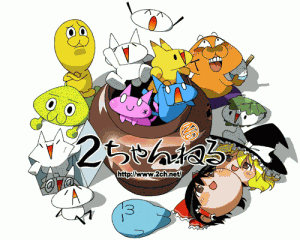 Or at least as far as anyone can verify. The story is in fact based on a series of posts by the eponymous “Train_Man” that were made on the Japanese text based electronic bulletin board site known as 2ch, short for 2channel (not to be confused with futaba channel, abbreviated as 2chan) where the man had initially reported about his encounter on the train in a thread for unhappy single men. It was in the same thread that he continued to seek advice while updating on the events of his first attempt at a romantic relationship. In a fun turn of events the surprisingly large following of supporters and onlookers on 2ch got to watch as the Train Man’s updates became more and more optimistic, asking for and taking their advice as he stumbled to muster up the courage to date the woman he had met on the train, right up until he ceased posting roughly 2 months later.
Or at least as far as anyone can verify. The story is in fact based on a series of posts by the eponymous “Train_Man” that were made on the Japanese text based electronic bulletin board site known as 2ch, short for 2channel (not to be confused with futaba channel, abbreviated as 2chan) where the man had initially reported about his encounter on the train in a thread for unhappy single men. It was in the same thread that he continued to seek advice while updating on the events of his first attempt at a romantic relationship. In a fun turn of events the surprisingly large following of supporters and onlookers on 2ch got to watch as the Train Man’s updates became more and more optimistic, asking for and taking their advice as he stumbled to muster up the courage to date the woman he had met on the train, right up until he ceased posting roughly 2 months later.
Although there are plenty of skeptics and questionable details to the story, the heart warming and inspirational tale of a relatable, awkward and nervously self-conscious geek learning to break out of his shell and find love thanks to the encouragement of a bunch of anonymous posters on an internet BBS site was something that touched many people, and the idea that it has already happened once lends power to it as a kind of modern myth.
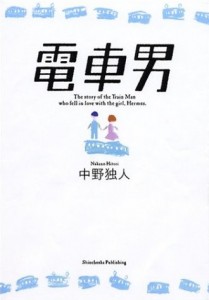 The posts themselves were collected, trimmed down from nearly 30,000 to only 1,919 relevant posts, edited from common Japanese internet shorthand into more coherent statements, and published in a book only several months after the initial event in 2004. The thread was broken into “Missions”, each covering one new step forward for the Train Man, as he attempted to clean himself up into a presentable, dateable, and approachable person. The book sold remarkably well for such an unusual publication, breaking 250,000 unit sold in just three weeks, and the book’s popularity coupled with the story’s naturally viral appeal in some of Japan’s tight-knit internet circles brought the story into the public spotlight with astonishing speed.
The posts themselves were collected, trimmed down from nearly 30,000 to only 1,919 relevant posts, edited from common Japanese internet shorthand into more coherent statements, and published in a book only several months after the initial event in 2004. The thread was broken into “Missions”, each covering one new step forward for the Train Man, as he attempted to clean himself up into a presentable, dateable, and approachable person. The book sold remarkably well for such an unusual publication, breaking 250,000 unit sold in just three weeks, and the book’s popularity coupled with the story’s naturally viral appeal in some of Japan’s tight-knit internet circles brought the story into the public spotlight with astonishing speed.
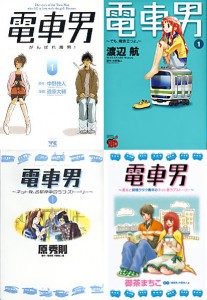 Within two years of the original event and the collected thread book four entirely different manga adaptations were published in four different magazines. Two manga ran in Akita Shoten’s Champion Red and Weekly Shonen Chamption magazines from 05 to 06 and were aimed at a shonen(boys 10-18) audience, one of which has been released in North America by CMX. One manga was run in Shogakukan’s Young Sunday magazine, aimed at a seinen(men 18+) demographic, which was been publish in NA by Viz Media, and the fourth was published directly to collected book format by Kodansha and aimed at a shoujo(girls 10-18) audience, also available in English by Del Rey. In the same year that all four manga began publishing, there was both an 11 episode TV drama and a full length feature film produced, once again, by different unrelated companies. The film was released in NA by Viz Media, but the 11 episode live-action TV series and subsequent bonus episodes have seen no international releases. There was also a live theater play, though I’ve got no substantial information to report on it.
Within two years of the original event and the collected thread book four entirely different manga adaptations were published in four different magazines. Two manga ran in Akita Shoten’s Champion Red and Weekly Shonen Chamption magazines from 05 to 06 and were aimed at a shonen(boys 10-18) audience, one of which has been released in North America by CMX. One manga was run in Shogakukan’s Young Sunday magazine, aimed at a seinen(men 18+) demographic, which was been publish in NA by Viz Media, and the fourth was published directly to collected book format by Kodansha and aimed at a shoujo(girls 10-18) audience, also available in English by Del Rey. In the same year that all four manga began publishing, there was both an 11 episode TV drama and a full length feature film produced, once again, by different unrelated companies. The film was released in NA by Viz Media, but the 11 episode live-action TV series and subsequent bonus episodes have seen no international releases. There was also a live theater play, though I’ve got no substantial information to report on it.
Each adaptation took its own artistic liberties with the story and characters, approaching the protagonist with various levels of awkward geekiness, the romantic interest with varying levels of elegant beauty-vs-casual attractiveness, adding in a number of additional supporting roles such as family and friends on both sides, and most notably the varying detail of the 2ch posters: The award winning TV drama most notably creates whole unspoken characters for most of the posters, giving them each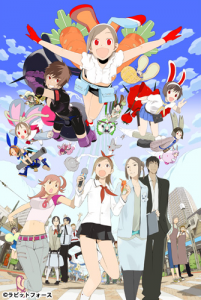 a bedroom or apartment littered with icons of their own personality and from time to time their own small scenes, adding a significantly more personal, albeit blatantly exaggerated flare to the online characters. In my Magical Girl article a few weeks back I mentioned a spinoff series that had initially been a show within a show, that show that the show was in was the Densha Otoko TV show. (say that ten times fast) The TV show also broke away from the original story in later episodes in order to address the overwhelming popularity of the story and in their own way create a new side of the story about the Train man living his life one year later with manga, TV shows, and a film about his romance being advertised all over the Akihabara he loved so much.
a bedroom or apartment littered with icons of their own personality and from time to time their own small scenes, adding a significantly more personal, albeit blatantly exaggerated flare to the online characters. In my Magical Girl article a few weeks back I mentioned a spinoff series that had initially been a show within a show, that show that the show was in was the Densha Otoko TV show. (say that ten times fast) The TV show also broke away from the original story in later episodes in order to address the overwhelming popularity of the story and in their own way create a new side of the story about the Train man living his life one year later with manga, TV shows, and a film about his romance being advertised all over the Akihabara he loved so much.
Although each adaptation takes a slightly different approach to the story and characters the key to the story’s massive success stays intact in its depiction not just of a cute the-geek-gets-the-girl romance story, but of a young man combatting a lifelong affliction of acute social anxiety and the monumental strength of character that it takes to break out of that endless cycle of always backing down from the big decisions in life. There is also something to be said for the way the story exemplifies certain aspects of the online community experience and the closeness some such communities can foster in spite or perhaps specifically because of the anonymity. While there were of course skeptics who questioned and downright denied the genuine quality of the story (and not without good reason) the fact remains that a large number of people were willing to trust and offer help and advice to a perfect stranger over the internet. In most cases the main character’s particular flavor of geekiness changes, and in one manga the tone of the romance is sweetened quite a bit, but my personal favorite change might be the TV drama’s addition of a surprisingly expansive context, turning the whole thing into more fiction than not, but in doing so made the story a whole different kind of entertaining. (Be warned however, while the TV series as a whole is entertaining, the first episode by itself can be almost repulsively awkward and just a little bit depressing.)
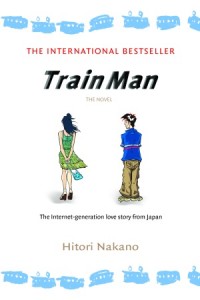 So, rather than spot light something cutesy and lovey-dovey to cuddle over for all the couples out there, I’d like to dedicate this year’s Valentine’s Day article specifically to anyone and everyone out there who knows what it’s like to feel like you’ll never be in a relationship, for the very first time, again, or in any meaningful or lasting capacity. To all of you who feel like yesterday was just another aggravating reminder of what you don’t have right now, don’t let that weigh down on your mood. More often than you think the geeky guys (and girls) can make an unexpected turn around. Even if the story of the Train Man isn’t true, it inspired a great number of real people to make real changes in themselves, and that impact is what matters. So, if you haven’t already, dig up a copy of one of the various adaptations of Densha Otoko, aka Train Man and count yourself among the inspired to be just a little more outgoing, just a little more presentable, and just a little more optimistic about things from here on out.
So, rather than spot light something cutesy and lovey-dovey to cuddle over for all the couples out there, I’d like to dedicate this year’s Valentine’s Day article specifically to anyone and everyone out there who knows what it’s like to feel like you’ll never be in a relationship, for the very first time, again, or in any meaningful or lasting capacity. To all of you who feel like yesterday was just another aggravating reminder of what you don’t have right now, don’t let that weigh down on your mood. More often than you think the geeky guys (and girls) can make an unexpected turn around. Even if the story of the Train Man isn’t true, it inspired a great number of real people to make real changes in themselves, and that impact is what matters. So, if you haven’t already, dig up a copy of one of the various adaptations of Densha Otoko, aka Train Man and count yourself among the inspired to be just a little more outgoing, just a little more presentable, and just a little more optimistic about things from here on out.
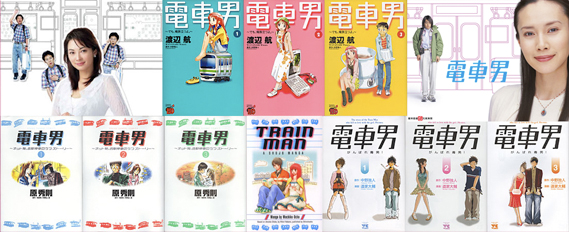
To clarify this fairly confusing line up of products the versions of this story available for purchase in the United States and Canada are as follows: Train_Man: Densha Otoko the seinen manga by Hidenori Hara and published by Viz, Densha Otoko: The Story of a Train Man Who Fell in Love With A Girl the shonen manga by Wataru Watanabe published by CMX, Train_Man: A Shojo Manga the shojo manga by Machiko Ocha published Del Rey, Train Man the book also released by Del Rey, and Train_Man: Densha Otoko the film, also released by Viz Media.



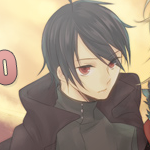

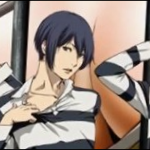
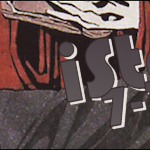



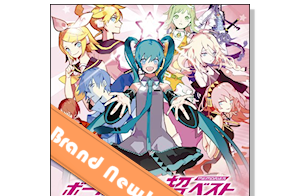





I heard of this story too! The Internet can spawn some good things sometimes…
Havent read one of your articles in a looong time. Definitely refreshing and always a pleasure!
I’m glad my work is still interesting! What have you been up to since AWC? Any interesting new shows you’ve gotten into?